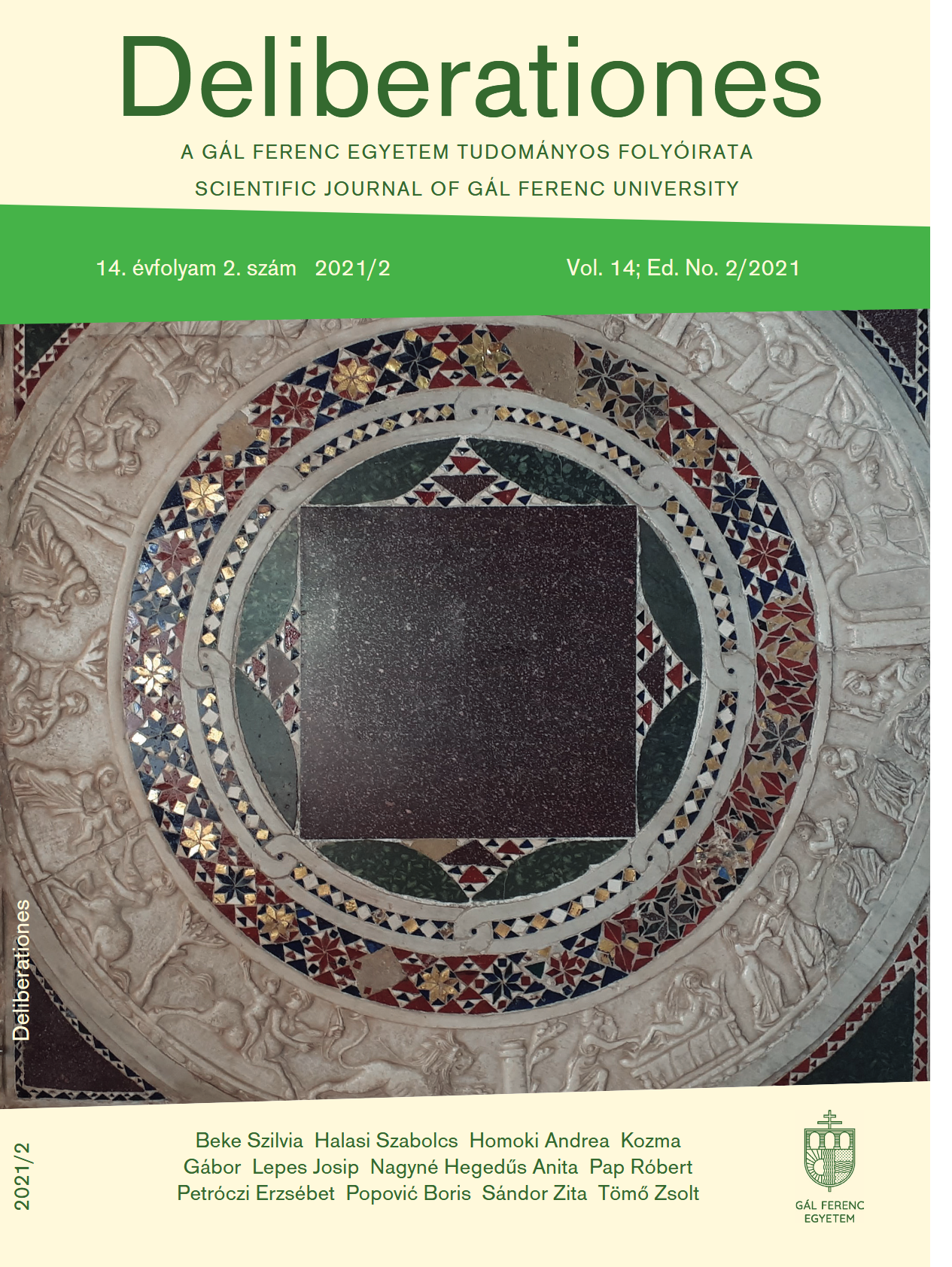Abstract
Based on a review of existing academic literature, the study aims to provide a comprehensive picture of the ongoing change in the interpretation of health as a concept, as well as the dominant nature of its segments and the shift in its perception as a core value.
Since the WHO concept of health was coined in 1946, it has undergone continuous development and change. Leaving behind the earlier idealistic picture of full and high-level physical, mental and social well-being, a much more realistic idea is now accepted, with a special focus on the dynamic relationship between the different determinants of health.
Bearing in mind the dominant nature of such relationships, a number of health models have been developed, which are presented in detail by the authors in order to underline their role in framing health as a key concept and value. The various approaches of the models are not only of theoretical importance, as the interpretations offered by the experts, albeit indirectly, affect the health of the individuals or the community as well. In previous decades, the dominant concept relied on the biomedical model, which approached health from a basic physical point of view, and mental health was significantly pushed into the background, both in the fields of prevention and treatment. At the same time, today's holistic approach represents the opposite view and acknowledges the full complexity of the human being. This thinking has been further reinforced by the current pandemic since the physical symptoms of the post‑COVID (Coronavirus Disease) syndrome are often triggered by problems related to mental health. The detrimental effects of the pandemic on health have resulted in a deteriorating mental status within the Hungarian population, so we have to reckon with negative consequences for mental health as well, which affects the value approach and the issue of the concept of health, too.
References
Organisation for Economic Co-operation and Development (OECD). (2019). Magyarország Egészségügyi országprofil 2019. https://ec.europa.eu/health/sites/default/files/state/docs/2019_chp_hu_hungary.pdf (Letöltés: 2021. november 3.)
Perczel-Forintos, D. (2020). A jót keresd, ne a rosszat-megküzdés járvány idején. A COVID-19 pszichés hatásai. Orvosképzés, 95(3), 562-569.
Vida, V., Popovics , P. (2021). A COVID-19 járvány hatása Magyarországon az élet különböző területeire (munka, magánélet, egészségi és mentális állapot). Régiókutatás Szemle, 4 (1), 25-36. doi:10.30716/RSZ/21/1/2
Osváth, P. (2021). A COVID–19-pandémia mentálhigiénés következményei. Hogyan tudunk felkészülni a pszichodémiás krízisre? Orvosi Hetilap, 162 (10), 366-374. doi:10.1556/650.2021.31141
Frecska, E., Balla, P. (2021). A COVID-19 fertőzés neuropszichiátriai szövődményei. Lege Artis Medicinae, 31.(7), 267-273.
Pikó, B. (2005). Lelki egészség a modern társadalomban. Budapest: Akadémia Kiadó.
Andrejkovics , M., Gasparik, É., Bokor, P., Frecska, E. (2013). Az orvoslás és a pszichoterápia új paradigmája: a bio-pszicho-spirituális modell. Pszichoterápia, 22.(2), 93-99.
Csabai, M., Molnár, P. (2009). Orvosi pszichológia és klinikai egészségpszichológia. Medicina Könyvkiadó.
Kállai, J., Varga, J., Oláh, A. (2014). Egészségpszichológia a gyakorlatban. Medicina Könyvkiadó.
Kézdy, A., Martos, T., Urbán, S., & Horváth-Szabó, K. (2010). A vallásos attitűdök, megküzdési módok és a lelki egészség összefüggései serdülő és fiatal felnőtt korban. Mentálhigiéné és Pszichoszomatika, 11(1), 1-16.
Pikó, B., Keresztesi, N. (2019). Sport, lélek, egészség. Akadémia Kiadó. doi:10.1556/9789634544630
Urbán , R. (2017). Az egészségpszichológia alapjai. ELTE PPK.
Kőműves, S. (2017). Az engeli biopszichoszociális modell. Metszetek, 4.(2.), 98-123.
Központi Statisztikai Hivatal (KSH). (2019) Európai Lakossági Egészségfelmérés. (2019). https://www.ksh.hu/docs/hun/xftp/idoszaki/elef/szubjektiv_jolet_2019/index.html (Letöltés: 2021. 10. 23.)
Petőné Csima, M. (2012). Az egészségmagatartás és koherencia-érzet szerepe az életminőség formálásában. PhD disszertáció share https://docplayer.hu/47936766-Pecsi-tudomanyegyetem-bolcseszettudomanyi-kar-oktatas-es-tarsadalom-nevelestudomanyi-doktori-iskola-nevelesszociologia-program-petone-csima-melinda.html (Letöltés: 2022.01.26.)
Magyar Tudományos Akadémia (2021.március 2.)Demertovics, Z., Király, O.. A COVID-19 járvány hatása a mentális egészségre., forrás:: https://mta.hu/tudomany_hirei/a-covid-19-vilagjarvany-hatasa-a-mentalis-egeszsegre-111251 (Letöltés: 2022.. 01. 16.)
